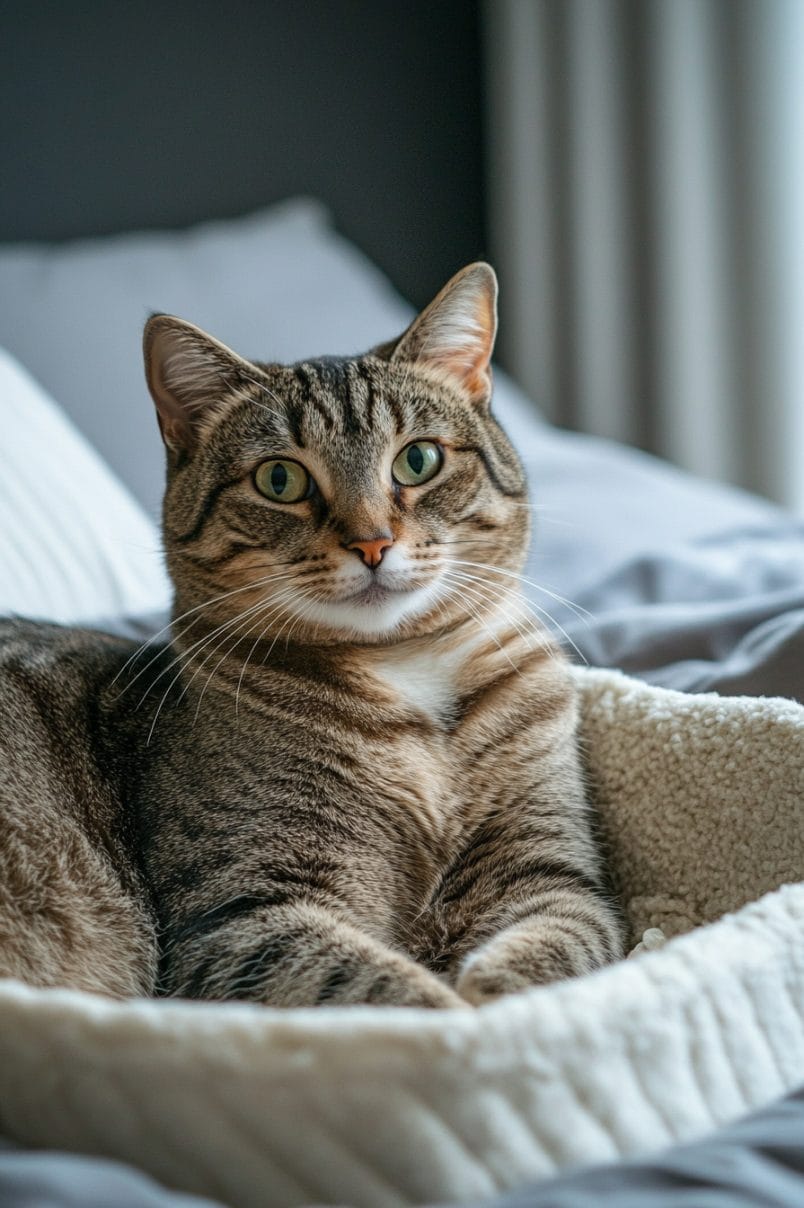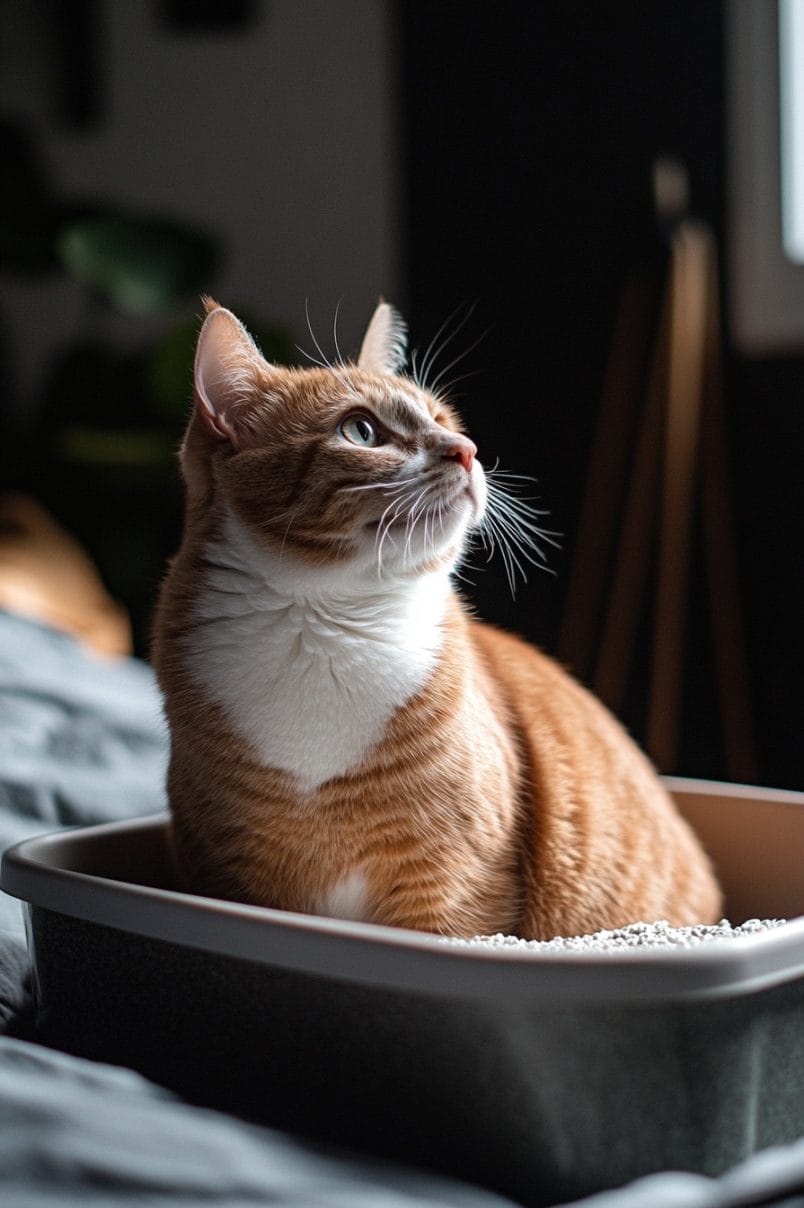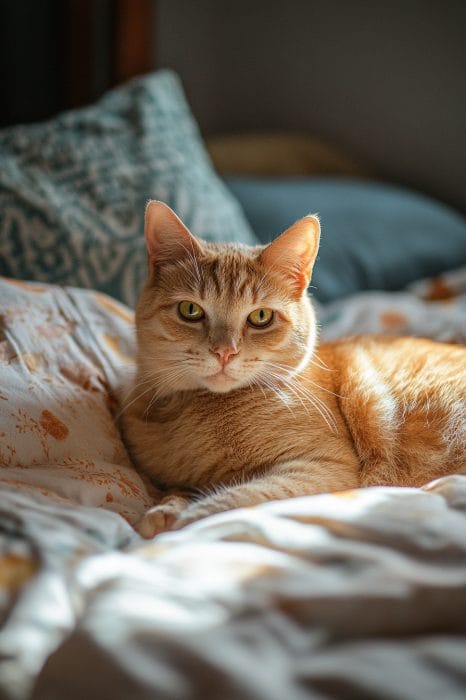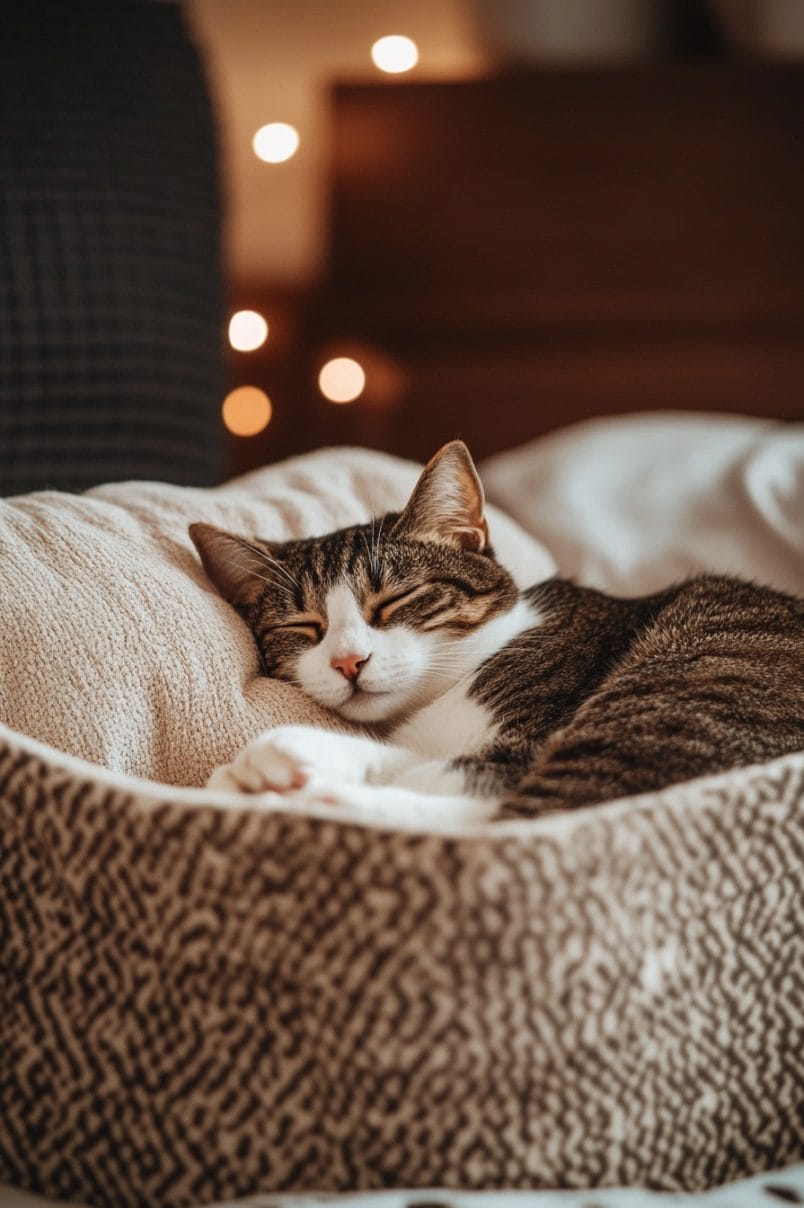
Dealing with a cat that pees on the bed is a common problem for many pet owners.
While it’s natural to feel frustrated, it’s important to remember that your cat isn’t doing this out of spite.
Cats are sensitive creatures, and their behavior often reflects underlying issues that need to be addressed.
Whether it’s a health problem, stress, or simply a preference, there are steps you can take to correct this behavior.
Common Reasons Why Cats Pee Outside the Litter Box
Before diving into the remedies, it’s essential to understand why your cat might be avoiding the litter box and choosing your bed instead.
Here are some of the most common reasons:
Medical issues
One of the first things to consider is whether your cat might have a medical condition.
Urinary tract infections (UTIs), bladder stones, or kidney disease can make urination painful or difficult, leading your cat to associate the litter box with discomfort.
A trip to the vet is crucial to rule out or treat any health issues.
Stress and anxiety
Cats are creatures of habit, and any disruption to their routine can cause stress.
Changes such as moving to a new home, introducing a new pet, or even rearranging furniture can trigger anxiety.
In some cases, cats may express their stress by urinating in places that smell strongly of their owner, like the bed, as a way to feel secure.
Dirty litter box
Cats are known for their cleanliness, and a dirty litter box can be off-putting.
If the litter box isn’t cleaned regularly, your cat may seek out a cleaner spot, such as your bed.
Territorial marking
If you have multiple pets, your cat may be marking its territory.
This behavior is more common in unspayed or unneutered cats, but it can occur in any cat that feels its territory is being threatened.
Litter box placement or type
The location of the litter box or the type of litter you’re using could be a factor.
Cats prefer quiet, accessible locations, and they may avoid the box if it’s in a noisy or hard-to-reach place.
Additionally, some cats are picky about the texture or scent of the litter.

Effective Home Remedies
Once you’ve identified the possible reasons behind your cat’s behavior, you can start implementing home remedies to stop the peeing on the bed.
Clean the affected area thoroughly
The first step is to clean any spots where your cat has urinated.
Cats have a strong sense of smell, and if they can still detect the scent of urine, they’re more likely to return to that spot.
Use an enzymatic cleaner specifically designed for pet urine, as regular household cleaners may not completely eliminate the odor.
Make the bed less appealing
To discourage your cat from peeing on the bed, try making it a less attractive option.
Cover the bed with a waterproof mattress protector, or place a vinyl tablecloth over it when you’re not using it.
Cats dislike the texture of vinyl, which can deter them from jumping on the bed.
Provide multiple litter boxes
If you have more than one cat, it’s essential to have multiple litter boxes.
A good rule of thumb is to have one litter box per cat, plus one extra.
This ensures that each cat has its own space and reduces the chances of territorial disputes.
Use feliway or calming sprays
Feliway is a synthetic version of the facial pheromones cats use to mark their territory as safe.
Spraying Feliway on your bed or using a diffuser in your bedroom can help reduce your cat’s anxiety and discourage inappropriate urination.

Try different litter types
If your cat seems unhappy with the current litter, experiment with different types.
Some cats prefer clumping litter, while others may favor non-clumping, crystal, or even natural options like pine or paper.
Find a litter that your cat is comfortable with and stick to it.
Block access to the bedroom
If possible, limit your cat’s access to the bedroom until the behavior is corrected.
Close the door or use a baby gate to keep your cat out when you’re not around.
This can help break the habit of peeing on the bed.
Increase playtime and interaction
Cats sometimes urinate outside the litter box due to boredom or a lack of stimulation.
Increasing your cat’s playtime and interaction can help reduce stress and provide a positive outlet for their energy.

Additional Tips and Precautions
While the remedies above can be effective, here are some additional tips to ensure long-term success:
Keep the litter box clean
Maintaining a clean litter box is essential for encouraging your cat to use it.
Make a habit of scooping out waste daily.
This simple step helps keep the litter box inviting and prevents any unpleasant odors from building up.
Additionally, replace the litter regularly to ensure it stays fresh and odor-free.
A clean environment is more appealing to your cat and helps prevent accidents outside the box.
Monitor your cat’s health
Regular veterinary check-ups are important for keeping an eye on your cat’s overall health.
If your cat suddenly starts avoiding the litter box, it could be a sign of a health problem, such as a urinary tract infection or other medical issues.
A vet can help identify any underlying health concerns and provide the appropriate treatment.
Early detection of health issues can prevent more serious problems and ensure your cat stays comfortable and healthy.
Reward good behavior
Positive reinforcement is an effective way to encourage your cat to use the litter box consistently.
When your cat uses the litter box correctly, reward them with treats or praise.
This positive reinforcement helps your cat associate using the litter box with positive outcomes, reinforcing the behavior you want to see.
Over time, this can help establish a reliable litter box routine.
Consider spaying or neutering
If your cat is not already spayed or neutered, it might be worth discussing this option with your veterinarian.
Spaying or neutering can help reduce territorial marking and other behaviors that might lead to litter box issues.
These procedures can also contribute to your cat’s overall well-being and prevent unwanted behaviors that can be challenging to manage.

Final Thoughts
Dealing with a cat that pees on the bed can be challenging, but with patience and the right approach, it’s possible to correct this behavior.
By understanding the reasons behind your cat’s actions and implementing effective home remedies, you can help your cat feel more comfortable and confident in using the litter box.
- Does Cat Litter Melt Ice? The Complete Guide to Winter Safety - January 30, 2026
- Happy Tail Dogs: Understanding This Common Canine Condition - January 29, 2026
- How Cold Can Outdoor Cats Handle? Feline Winter Safety - January 27, 2026


GIPHY App Key not set. Please check settings